Acidulants Supplier
Our acidity regulators are available in both natural and synthetic types.
They are finely powdered and meet stringent industry requirements.
- Food Grade
- Natural & Synthetic Options
- Powder Particle Size Ranges from 8~100 Mesh
- With KOSHER, ISO, HALAL, FSSC22000, BRC Certifications
ACIDULANTS' Functions
Acidity regulators in food and beverages, also known as acidulants, are used in food processing to control the pH level, enhance flavor, and preserve food. Usually, these acidifiers such as citric acid, malic acid, fumaric acid, and lactic acid are used, among others. Acidulants are critical in maintaining the desired acidic or alkaline balance in food and beverages.
In various food and beverage industries, by adjusting the pH, acidulants can influence the texture, color, and taste of foods, as well as extend shelf life by inhibiting microbial growth. These additives are essential in products like soft drinks, baked goods, and dairy items, ensuring consistency and safety in food consumption.
TYPES OF ACIDULANTS
Natural Acidulants
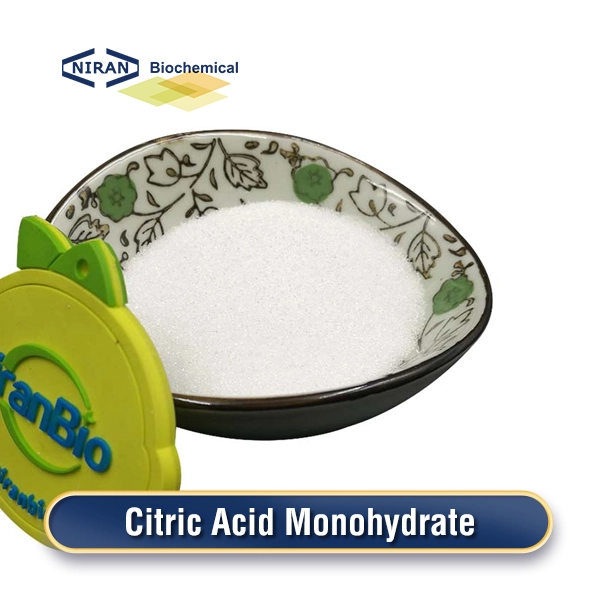
Citric Acid Monohydrate
A naturally occurring acid found predominantly in citrus fruits. It is typically extracted through a fermentation process using the fungus Aspergillus niger on a carbohydrate substrate. This form of Citric Acid contains one molecule of water per molecule of acid.
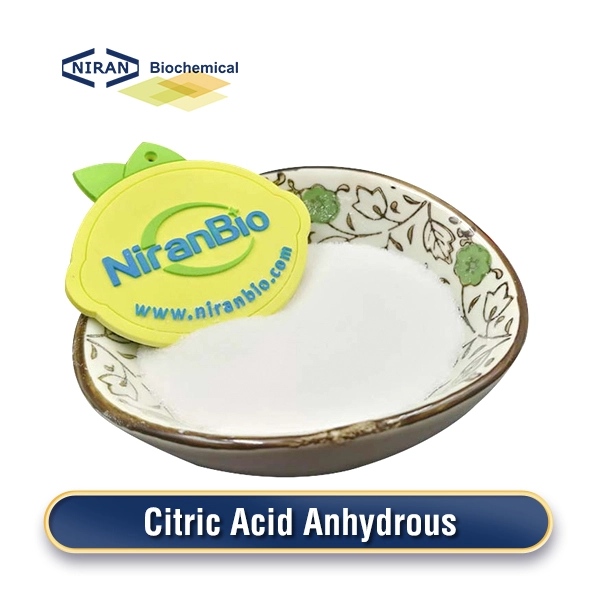
Citric Acid Anhydrous
Similar to its monohydrate counterpart, it's the purest form of citric acid (acidity regulator E330), which is also naturally present in citrus fruits. The anhydrous form is derived by removing the water molecules from Citric Acid Monohydrate through a crystallization process.
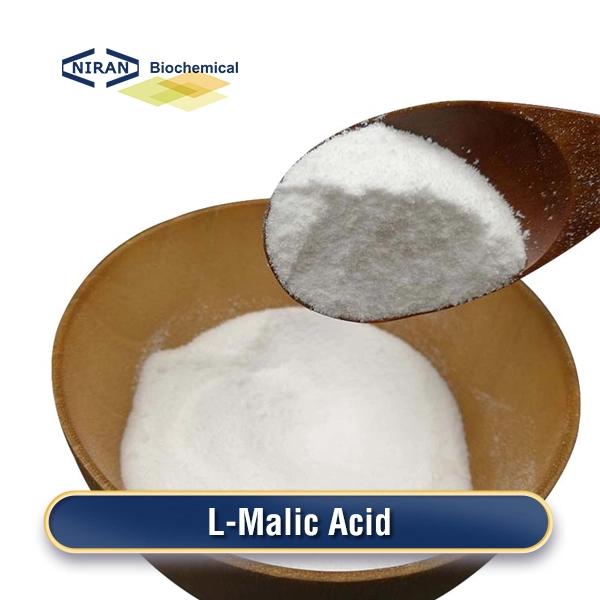
L-Malic Acid
L-Malic Acid is a naturally occurring acid found in many fruits, most notably in apples. It can be extracted from fruit juices or produced via biotechnological processes involving the fermentation of sugars. Known for its tart taste, it is used to enhance fruit flavors, and regulate acidity.
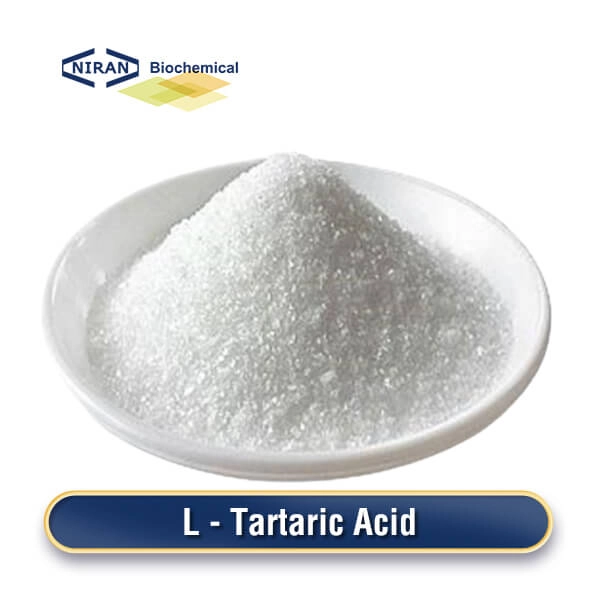
L-Tartaric Acid
L-Tartaric Acid is naturally abundant in grapes, bananas and other fruits. It is often obtained as a byproduct of the winemaking process, where it crystallizes out of the fermentation mixture. This acid is valued for its strong sour taste and excellent buffering capacity.
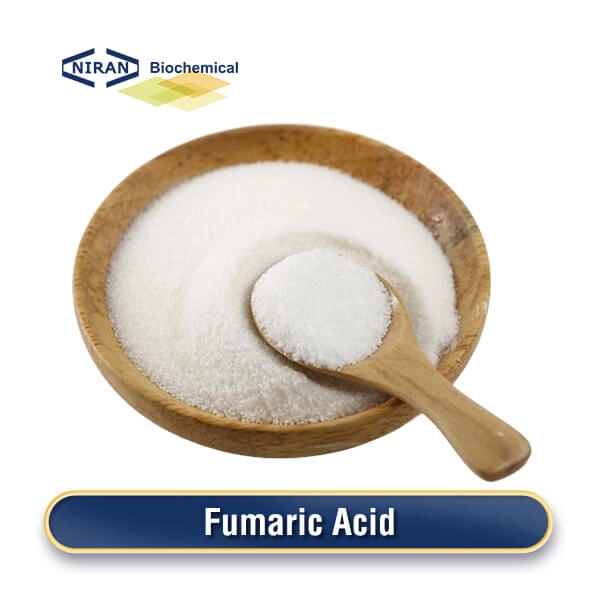
Fumaric Acid
Fumaric Acid (E297) is a naturally occurring acid found in apples and carrots. It is typically produced by the fermentation of glucose by fungi such as Rhizopus oryzae. Known for its strong acidity and low hygroscopicity, it is used to maintain the stability and shelf life of foods.
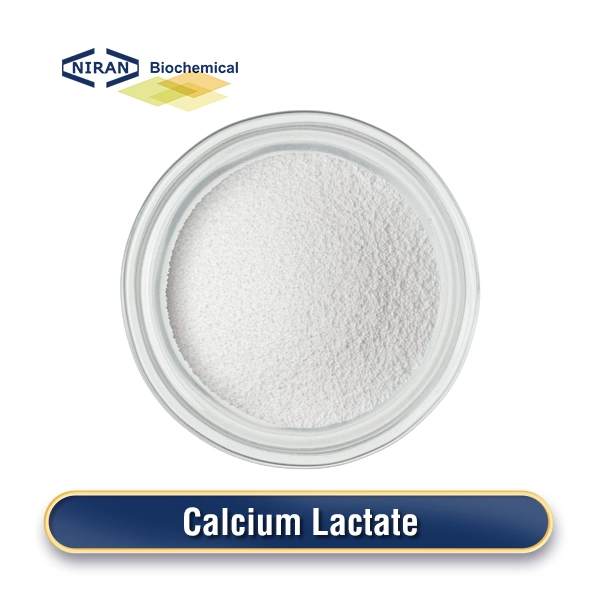
Calcium Lactate
Calcium Lactate is a natural calcium salt derived from lactic acid (E270). It is produced by the fermentation of lactic acid by bacteria such as Lactobacillus species, followed by Calcification reaction. It serves as an acidity regulator and a source of calcium in food products.
Synthetic Acidulants
Synthetic acidulants are man-made chemicals used in food processing to adjust acidity, enhance flavor, and preserve freshness. They are widely used due to their consistent quality, effectiveness, and often, cost-efficiency compared to natural alternatives.
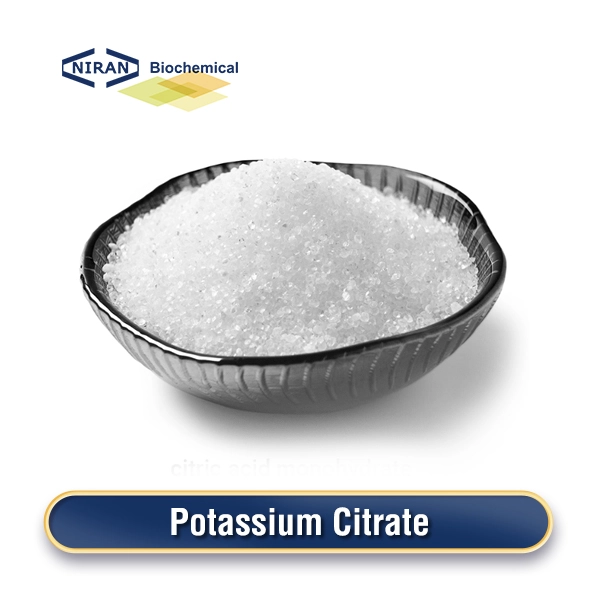
Potassium Citrate
Potassium citrate is a synthetic acidity regulator derived from citric acid and potassium hydroxide. It is produced through a neutralization process, where citric acid reacts with potassium carbonate or potassium hydroxide.
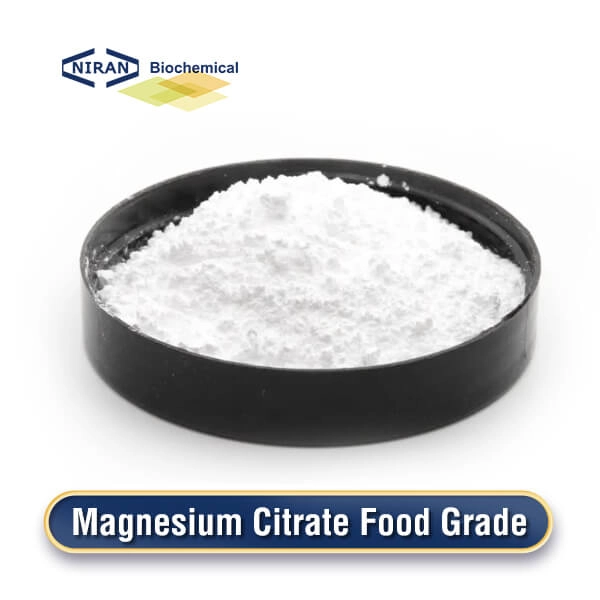
Magnesium Citrate
Magnesium Citrate is formed by reacting magnesium carbonate or magnesium hydroxide with citric acid. The reaction yields a powdery substance that serves as an acidity regulator and commonly used in supplements products.
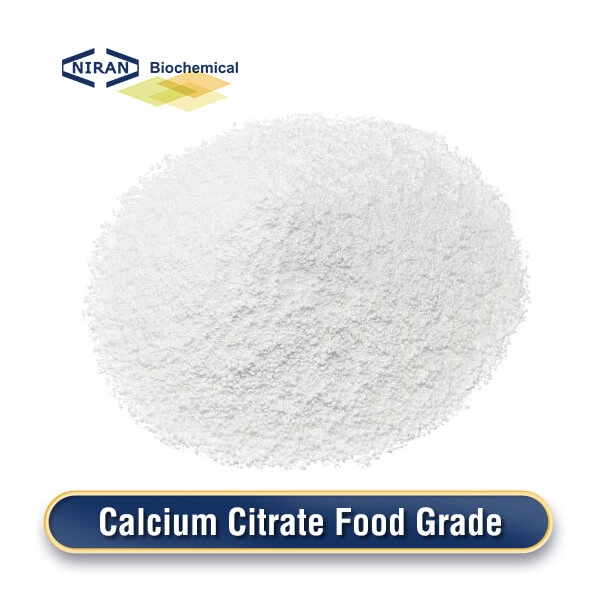
Calcium Citrate
Calcium Citrate is made by neutralizing citric acid with calcium hydroxide or calcium carbonate. This reaction results in a compound widely used as a food additive for acidity control and as a calcium supplement.
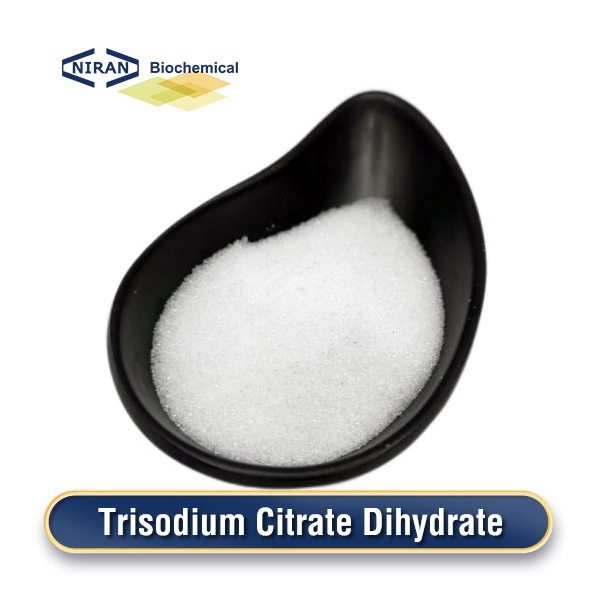
Trisodium Citrate Dihydrate
It is a synthetic acidity regulator synthesized by reacting citric acid with sodium carbonate or sodium hydroxide. The resulting sodium salt (E331) is a versatile acidity regulator commonly used in food, and beverages.
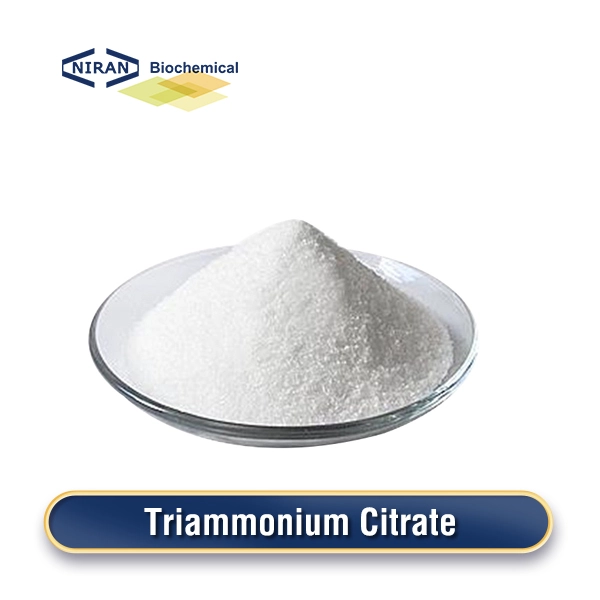
Triammonium Citrate
Triammonium citrate is created by neutralizing citric acid with ammonia. The reaction produces a crystalline powder that is highly soluble in water. This compound is utilized in food processing for its buffering and acidulating properties.
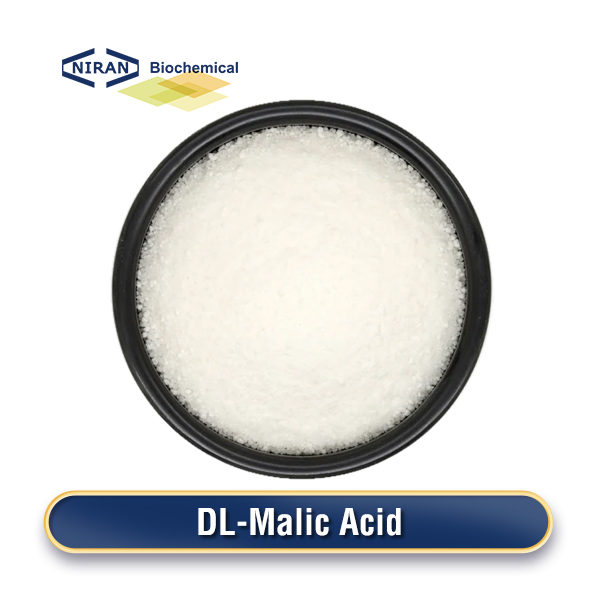
DL-Malic Acid
DL-Malic Acid is produced through the chemical synthesis involving maleic anhydride and hydration processes. The synthesized racemic mixture of D- and L- isomers of malic acid is used to regulate acidity in food and beverages.
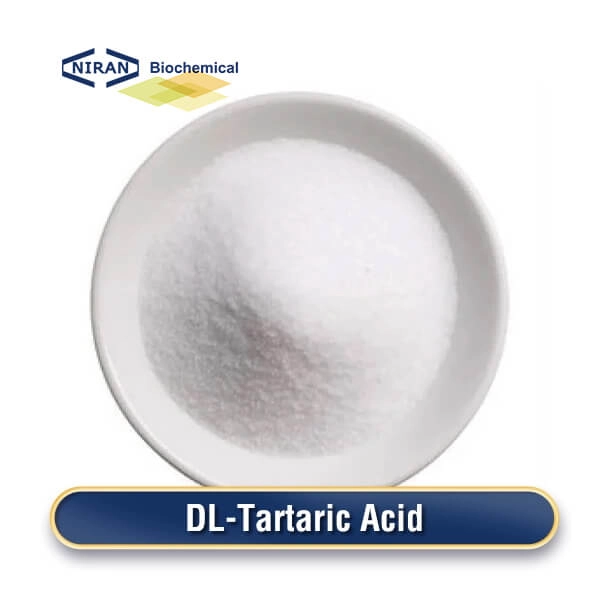
DL-Tartaric Acid
DL-Tartaric acid is synthesized through the chemical synthesis of maleic anhydride and hydrogen peroxide. The result is a white crystalline powder that is soluble in water. It is employed as an acidulant in food products to impart a tart flavor.
APPLICATIONS OF ACIDULANTS
Acidulants are used extensively in food and beverage industries. In each of these applications, the choice of acidulant depends on the desired chemical properties, such as the strength of the acid, its taste, and how it interacts with other components of the product.

Food Industry
Flavor Enhancement: Acidulants, such as citric acid and malic acid, are used to add a sour or tangy taste to foods and beverages, including soft drinks, candies, and fruit juices.
Preservation: Acetic acid, lactic acid, and others help preserve foods by lowering pH levels, which inhibits the growth of bacteria and extends shelf life. This is crucial in products like pickles, sauces, and dairy items.
PH Control: Acidulants are used to maintain or adjust the pH level in food processing, which can affect the color, taste, and texture of the product.
Gelling Agent: In jams, jellies, and gummy candies, acidulants like citric acid interact with other ingredients to achieve the desired consistency.

Beverage Industry
Carbonated Drinks: Phosphoric acid is frequently utilized as an acidulant in cola beverages and various other soft drinks due to its distinctive sharp taste.
Sports and Energy Drinks: To offset the sweetness, acidulants are employed to impart a refreshing and thirst-quenching flavor.
FAQs
What are acidulants in food?
Acidulants are compounds incorporated into food and beverages to adjust or regulate acidity levels. They can enhance flavor, act as preservatives, and affect color and texture.
Why are acidulants used in food?
They are used to preserve food, enhance flavor, improve shelf life, and sometimes aid in food processing like gelling or stabilizing.
Are acidulants safe to consume?
Yes, when used within regulatory guidelines, acidulants are safe for consumption. They are approved by food safety authorities like the FDA and EFSA.
Can acidulants cause allergies?
Acidulants are not common allergens. However, individuals with specific sensitivities should check food labels for specific types of acidulants.
What are some examples of natural acidulants?
Natural acidulants like citric acid from citrus fruits, lactic acid from dairy products, and acetic acid from vinegar are commonly used in food processing.
What are synthetic acidulants?
These are man-made acidulants, like phosphoric acid and sodium citrate, used for consistency and efficiency in food processing.
Do acidulants affect the nutritional value of food?
Generally, they do not significantly alter the nutritional content. Their main role is in food preservation and flavor enhancement.
Are acidulants used in all processed foods?
While not all, a considerable number of processed foods incorporate acidulants to prolong shelf life and enhance flavor. They are common in beverages, baked goods, and canned products.
How are acidulants regulated?
Food authorities like the FDA (U.S.) and EFSA (Europe) set regulations for the safe use of acidulants, including maximum allowable amounts.
Is your product non-GMO? If so, could you provide any certificates?
Our product is certainly GMO-free. We gladly provide you with any certification upon request, such as our IP report. Furthermore, our monosodium citrate anhydrous meets all requirements of USP, FCC, European pH range, BP, JSFA, and JP.
Our requirements differ a little from your specifications. Could you produce a customized product for us?
Of course, we are more than willing to provide you with the exact product you need. Please contact us and let us know your detailed specifications, and we make sure NIRAN provides you with the exact product you requested.
